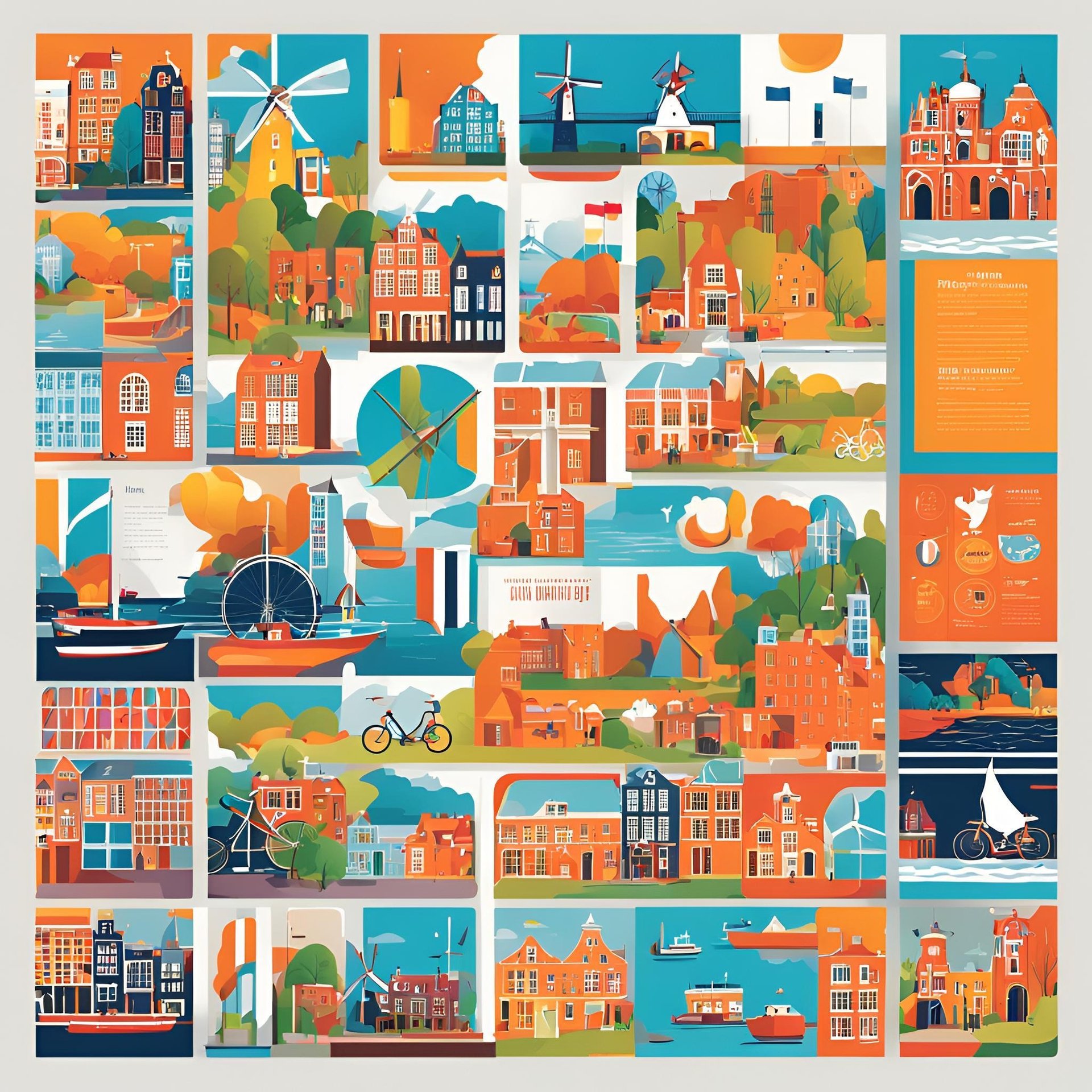
Quick Facts and FAQ
Maybe your answer is already here, click to find out!


First Steps
Register with your municipality
Get your BSN number
Open a Dutch bank account
Arrange health insurance
Cost Overview
Average rent: €1000-2000
Public transport: €100/month
Groceries: €300-400/month
Healthcare: €120/month
Important Timelines
Registration: Within 5 days
Health insurance: Within 4 months
Residence permit: Before arrival
Tax return: Before May 1st
Q: Do I need a visa to live in the Netherlands?
A: It depends on your nationality and reason for staying. EU/EEA citizens don’t need a visa, but non-EU/EEA citizens typically require a residence permit. For stays over 90 days, you may need an MVV (entry visa) before arrival. Check the IND website for your specific situation.
Q: How can I find housing in the Netherlands?
A: Housing can be tricky due to high demand. For rentals, start with platforms like Pararius, Funda, or Kamernet. If you qualify, apply for social housing through local housing corporations, but expect long waiting lists in cities. For students, explore university housing services or shared accommodations. Always review your rental contract carefully.
Q: How does the healthcare system work?
A: Health insurance is mandatory. Basic insurance (basisverzekering) covers GP visits, hospital care, and prescriptions, costing around €120-140/month. You’ll need to register with a local GP (huisarts) for primary care, as they coordinate referrals to specialists. Emergency care is covered under basic insurance.
Q: What is the 30% ruling?
A: The 30% ruling is a tax advantage for highly skilled workers moving to the Netherlands. If eligible, 30% of your gross salary is tax-free for up to 5 years, helping offset relocation costs. Talk to your employer or a tax advisor to apply.
Q: What are the best transport options in the Netherlands?
A: The OV-chipkaart is your go-to for trains, buses, trams, and metros. Biking is the king of transportation and a cultural staple—rent or buy a bike to fit in like a local. For longer trips, trains (operated by NS) connect major cities efficiently, and intercity buses fill the gaps.
Q: How can I register to live in the Netherlands?
A: You must register at your local municipality (gemeente) within five days of arriving. Bring your passport, residence permit, housing contract, and birth certificate (apostilled). You’ll receive a BSN (citizen service number), essential for opening a bank account, working, and accessing healthcare.
Q: What is the cost of living in the Netherlands?
A: The cost of living varies by city. Rent in Amsterdam or Utrecht can exceed €1,200/month for a private apartment, while smaller cities are more affordable. Groceries cost about €40-60/week per person. Public transport and health insurance are also significant expenses, but student discounts and tax benefits help.
Q: Can I work in the Netherlands as an international student?
A: Yes, but non-EU/EEA students may need a work permit (TWV). You're allowed to work up to 16 hours per week during the school year and full-time during summer. Check with your university’s international office for guidance.
Q: How do I adapt to Dutch culture?
A: Expect direct communication and punctuality. Learn some basic Dutch phrases, but don’t worry—most locals speak English. Join community events, borrels (casual drinks), or clubs to meet people. Get used to early dinner times (6-7 PM) and embrace the cycling lifestyle!
Q: What is the weather like in the Netherlands?
A: The weather is famously unpredictable. Winters are mild (0-10°C), and summers are cool (15-25°C), but rain is a frequent visitor year-round. Always carry an umbrella or a waterproof jacket!
Q: What is a DigiD, and do I need one?
A: A DigiD is your digital ID for accessing Dutch government services, including healthcare, taxes, and municipal services. Apply for one at digid.nl once you have a BSN and valid address in the Netherlands.
Q: Are there family-friendly activities in the Netherlands?
A: Absolutely! From zoos like Artis to amusement parks like Efteling, the Netherlands has plenty for families. Parks, playgrounds, and child-friendly cafes are common, and cities host seasonal events perfect for kids. The Dutch education system also includes excellent daycares and schools.
Q: What are the typical costs of living?
A:
Rent: €750-1,200/month for a private apartment; €300-700/month for shared housing.
Groceries: €50-70/week per person.
Transport: €100-200/month for public transport or bike maintenance.
Dining out: €15-30 per meal at a mid-range restaurant.
Q: How do I register in the Netherlands?
A: If staying for more than 4 months, you must register with your local gemeente (municipality) to get a BSN (Citizen Service Number). Bring your passport, rental agreement, and birth certificate (apostilled if required).
Q: How is the Dutch education system structured?
A:
Primary education (basisschool): Ages 4-12.
Secondary education (voortgezet onderwijs): Various tracks based on academic ability.
Higher education: Research universities (WO) and applied sciences (HBO).
For children under 4, daycare (kinderdagverblijf) is available. International schools are also a good option for expat families.
Q: What is the Dutch weather like?
A: Unpredictable! Winters are mild (0-10°C), summers cool (15-25°C), and rain can surprise you any time. Always carry an umbrella or a raincoat, and embrace the Dutch love for biking in any weather.
Q: Where can I learn Dutch?
A: Many municipalities offer free or subsidized Dutch language courses. Platforms like DuoLingo, Italki, or local language schools such as Babel can also help. The Dutch appreciate any effort to learn their language, even if they switch to English immediately!
NetherGuides
Your resource for thriving in the Netherlands.
© 2024. All rights reserved.
Top 10 Things to Do When You Arrive in the Netherlands
Daycare, Schools, and Activities in the Netherlands
How to Open a Bank Account in the Netherlands
Residence Types and Registration Process
Housing types and finding a home
Dutch Higher Education
Health Insurance in the Netherlands
Work Permits and Rights in the Netherlands
Essentials for Everyday Life in the Netherlands
Quick Facts and FAQ
